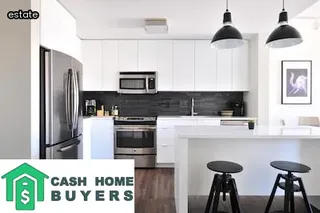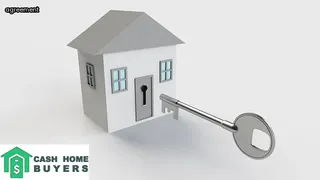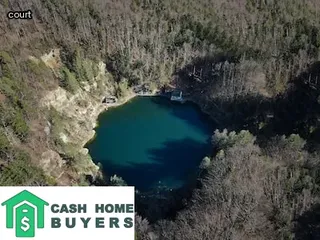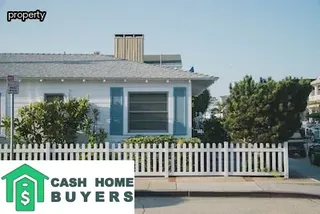In South Carolina, unclaimed funds and bank accounts can be a major issue for landlords. Any funds or accounts that have been left abandoned by tenants when they move out are considered the property of the landlord.
This includes any cash, checks, money orders, deposits, stocks, bonds, mutual funds and other non-real estate assets. Landlords should also be aware that unclaimed property may include any money from security deposits as well as unpaid rent or utility bills.
Furthermore, if an account was opened in the tenant’s name during their tenancy period and not closed before they vacate the premises, then the landlord is legally entitled to those funds. It is important for landlords to understand that these laws do not apply to tangible personal property such as furniture and clothing left behind by a tenant; these items must be handled separately through the appropriate parties.
To ensure compliance with laws pertaining to unclaimed funds or accounts in South Carolina, landlords must take all necessary steps to secure them in a timely manner.

Under South Carolina law, if a tenant abandons their property in the rental property, the landlord is legally responsible for taking possession of it. The Unclaimed Property Program sets out the requirements for landlords to follow when dealing with tenant abandonment.
Landlords must file a "Notice of Abandonment" within 10 days of realizing that the tenant has abandoned the property, and then must wait at least 30 days before disposing of it. This Notice must be given to local law enforcement, as well as mailed to the tenant's last known address.
After this waiting period, landlords have several options for disposing of the abandoned property; they can donate it to charity, retain it or sell it at public auction provided they receive authorization from local law enforcement. Landlords are also required to keep records regarding any abandoned property that is disposed of and provide them upon request.
By understanding and following these guidelines established by South Carolina's Unclaimed Property Program, landlords can ensure they remain compliant with state laws.
In South Carolina, abandoned vehicle laws are in place to ensure landlords are aware of their responsibilities when it comes to tenant property. According to the South Carolina Code of Laws, landlords must make reasonable attempts to contact tenants who have left behind a vehicle on the premises.
If there is no response after 15 days, the landlord may pursue legal action by filing a lien on the vehicle and disposing of the vehicle after 30 days. The South Carolina Department of Motor Vehicles requires that all vehicles disposed of must be reported with a Notice of Abandonment form which can be obtained from any DMV office.
Landlords should also familiarize themselves with local laws governing abandoned vehicles as they may vary by county or city. It is important for landlords to understand these laws and take appropriate steps to protect their property from potential liability issues related to abandoned vehicles.

For landlords, it is important to understand the laws regarding tenant property abandonment in South Carolina. Specifically, when it comes to claiming ownership of abandoned watercraft, the landlord must be aware of their rights and responsibilities.
For example, the landlord has a legal obligation to take possession of any abandoned watercraft and store it for up to 45 days. During this period, the landlord must also take reasonable steps to identify and notify the owner or other interested parties of their intention to claim ownership of the boat.
If no one responds within this period, then after 45 days the landlord may apply for title or registration with the Department of Natural Resources (DNR). The landlord can also post notice of intent to claim ownership in a newspaper that serves the jurisdiction where the vessel was found.
The DNR will review all documentation and if approved, assign title or registration to the landlord. It is important for landlords to be aware of their rights and obligations when dealing with abandoned tenant property so they can make informed decisions as needed.
In South Carolina, animal abandonment regulations are in place to protect both landlords and tenants. Landlords must be aware of the laws surrounding animal abandonment, as they are responsible for ensuring that any tenant property left behind is handled according to state law.
Abandoned animals must be cared for until they can be safely returned to their rightful owners or placed with a new home. If an owner fails to reclaim the animal within seven days, it may then be surrendered to a local humane society or other animal rescue facility.
Landlords must also abide by the rules of any applicable city ordinances on abandoned animals, as these may vary from state laws. Furthermore, if a landlord encounters any hazardous conditions due to an abandoned pet on their property, such as vermin infestation or excessive waste accumulation, they should contact their local Department of Health and Environmental Control immediately.
It is important for landlords to stay informed on all South Carolina abandonment laws in order to ensure that tenant property is properly handled and protected.

When a tenant abandons their property in South Carolina, it is important for landlords to understand the state’s laws regarding abandonment and tenant property. Abandonment occurs when a tenant vacates the premises without providing notice to the landlord or paying rent for a period of time.
In South Carolina, if a tenant fails to pay rent for 15 days and has abandoned the rental property, the landlord may file an eviction lawsuit with the court. Once a landlord is awarded possession of the rental unit, they are responsible for disposing of any personal property left behind by the tenant.
Landlords must adhere to specific procedures when handling abandoned tenant possessions and may be held liable if they fail to do so in accordance with state law. Before disposing of any items, landlords must determine whether they have any value and attempt to contact the tenant in order to give them an opportunity to reclaim their belongings.
If all attempts at contacting are unsuccessful, landlords must store or dispose of the items according to legal guidelines, which vary depending on the type of item abandoned.
Abandonment of tenant property in South Carolina can have serious legal consequences for landlords. It is important for them to understand these laws so that they are aware of their rights and responsibilities should a tenant leave behind personal property after moving out.
Technically, abandonment occurs when the tenant has vacated the premises and has notified the landlord (in writing) that they will not be returning or have failed to pay rent for at least 15 days. In such cases, the landlord is not allowed to dispose of any items left behind unless they have obtained a court order or written consent from the tenant.
If neither of these conditions are met, the landlord may be liable for civil damages as well as criminal charges, including conversion, trespass and unlawful disposal of property. The best practice is to take inventory of any abandoned items, provide notice to the tenant and wait at least 30 days before taking any action with regards to those items.

In South Carolina, understanding the abandonment laws surrounding tenant property is essential for landlords. In order to determine a tenant’s intention to vacate a rental property, there are some key things to consider.
First, it is important to review the state’s residential landlord and tenant act. This document outlines how much time must elapse before a landlord can assume a tenant has abandoned their rental property.
If the tenant has not paid rent for two months or longer, the landlord can reasonably assume they have vacated the premises. Additionally, the landlord should inspect any visible changes in the condition of the rental that may indicate an intention to leave such as removal of personal belongings or disconnection of utilities.
Furthermore, if a tenant has provided written notice that they plan to move out on a certain date, this will also be indicative that they intend to abandon their tenancy. Finally, if other tenants or neighbors have reported seeing signs of an abandoned residence such as mail piling up or furniture being left behind, this could signify that the tenant has left without formally terminating their lease agreement.
Overall, these factors will help landlords determine whether their tenants have indeed abandoned the property and taken steps towards recovering their losses.
As a landlord in South Carolina, it is important to understand your responsibilities when it comes to tenant property that has been abandoned. According to state law, the landlord must make a reasonable effort to determine if the tenant has indeed abandoned the property.
If you believe this is the case, you must provide written notice and store any of the tenant’s personal items for a minimum of 30 days. During this time frame, you may also charge a storage fee for any items not removed.
You are allowed to sell or dispose of abandoned property after 30 days if such items have no significant value or if the tenant does not claim them within the allotted time frame. Landlords should also be aware that they are responsible for any costs associated with removing and disposing of abandoned items left by tenants and that they must always adhere to applicable laws and regulations related to abandonment.

A landlord in South Carolina may take possession of a tenant's personal property that is left behind when the tenant abandons the rental unit. However, landlords must follow certain regulations regarding how they can reclaim this tenant property.
In order to legally reclaim possession of the tenant property, a landlord must give written notice to the tenant informing them that their belongings will be disposed of if not claimed within 30 days after abandonment. If the landlord has a valid mailing address for the tenant, they must mail or post this notice at least 5 days prior to disposal.
The landlord can also store any unclaimed items on their own property and hold it for up to 90 days before disposing of it as long as they have given proper notification. Once the abandoned items are disposed of, the landlord may collect any unpaid rent from the tenants security deposit.
It is important for landlords in South Carolina to familiarize themselves with state laws governing abandonment of personal property by tenants so they can properly reclaim and dispose of it while following all legal requirements.
When it comes to dealing with tenant property left behind in South Carolina, landlords need to familiarize themselves with the state's abandonment laws to ensure they are disposing of items properly. Items that have been left behind by a tenant can be classified as abandoned if the tenant has not contacted or paid rent in at least thirty days.
In this case, the landlord is legally allowed to dispose of these items as long as they follow certain protocol: all reasonable attempts must be made to contact the tenant and inform them of their abandoned property, and if there is no response after thirty days then the landlord may proceed with disposal. Landlords should keep any records of the attempted contact for their own legal protection.
The most important point for landlords is that all disposal must be done in accordance with local, state and federal regulations for proper handling and disposal of hazardous materials such as chemicals, paint and other toxins. By adhering to these guidelines, landlords can make sure they are properly disposing of any abandoned items in South Carolina while also protecting themselves from potential legal issues.

In South Carolina, funds are considered unclaimed when a tenant has abandoned their residence and left behind personal property without making arrangements for removal or storage. Funds are also considered unclaimed when the landlord has not been able to contact the tenant after three months of mailing notices to their last known address.
The landlord is then responsible for any money owed by the tenant and must take necessary steps to reclaim it as unclaimed funds. Furthermore, if the landlord discovers that any of the tenant's personal property is valuable enough to cover unpaid rent, they have 30 days to contact the tenant and give them an opportunity to reclaim it in lieu of payment.
If no such offer is made within that timeframe, then the landlord may keep the item or dispose of it in accordance with South Carolina laws and regulations.
In South Carolina, landlords are responsible for handling tenant property that has been abandoned. This includes filing a claim with the state's Unclaimed Funds Program if necessary.
To file a claim with the program, landlords must provide documentation that shows they have taken possession of the abandoned property and provide an itemized list of all of the tenant's belongings. A copy of the lease agreement is also required to be submitted along with any other supporting evidence to verify ownership of the property.
The paperwork must be accompanied by a notarized affidavit from the landlord stating that he or she has taken possession of the property and it is now considered abandoned. Once all documents have been submitted, the landlord should receive a response in writing from the state within two weeks as to whether or not their claim was approved.
If approved, funds will be released to cover costs associated with storing and disposing of any tenant items left behind when they vacated their rental unit.

When a tenant abandons their rental property in South Carolina, landlords are responsible for returning any lost or stolen bank accounts and assets that were left behind. This includes searching the residence for any items of value, such as jewelry, electronics, or cash.
Once the landlord discovers these assets, they must notify the original owner or their designated representative of the discovery. They can do this by sending a certified letter to the address on file with the bank account or asset holder.
The letter should include all relevant details regarding the abandonment and a deadline for when it must be retrieved. Landlords should also contact local law enforcement if they suspect any illegal activity was involved in abandoning the property.
If an asset is not reclaimed within the specified timeframe, then it is up to the landlord to decide how to dispose of it in accordance with local laws and regulations.
When a tenant leaves property behind after abandonment, South Carolina law requires that landlords notify the heirs of the tenant. To locate unknown heirs, landlords must start by searching public records for the tenant’s last known address.
If this fails to reveal any information about the tenant’s family, then an advertisement in a local newspaper may be required. This advertisement must include all known information about the tenant and their property.
Landlords should also reach out to any resources they may have at their disposal, such as tax records or other agencies with access to vital documents. Once potential heirs are located, it is important that landlords properly inform them of their legal rights and obligations when it comes to inheriting the unclaimed property.
It is also important for landlords to understand that there are deadlines for taking possession of the abandoned property and filing all necessary paperwork with the state. By following these steps, landlords can ensure that tenant property abides by South Carolina abandonment laws and is handled in a legally sound manner.

When a tenant has abandoned property in South Carolina, the landlord is responsible for locating any beneficiaries of the tenant's unclaimed insurance policies. To do so, the landlord must take certain steps to ensure they are compliant with South Carolina law.
First, they must make reasonable attempts to locate and notify any known or reasonably ascertainable beneficiaries of the insurance policy. Second, they must publish notice of the abandonment as an advertisement in a newspaper circulation in the county of the former tenant’s residence.
This is done to obtain information on potential beneficiaries of unclaimed insurance policies that may exist. Once these steps have been taken, if no beneficiary can be located after two years from the date of abandonment, then all proceeds from the policy belong to the landlord.
It is important for landlords to understand their legal obligations when it comes to dealing with abandoned property and unclaimed insurance policies in South Carolina.
Landlords in South Carolina should be aware of the state's Abandonment Laws when it comes to tenants' property. The laws dictate that landlords must take certain steps in order to document their ownership of lost assets, such as providing proof that they have sent a notice to the tenant regarding their intention to dispose of any abandoned items.
This can be done by sending a certified letter to the tenant with return receipt requested or by posting a notice at the property. Landlords should also keep records indicating that proper attempts were made to notify the tenant about any abandoned items and provide an itemized list of all items being disposed of.
Additionally, landlords must wait at least 30 days before taking possession of any property left behind. It is important for landlords to understand these laws and take every step necessary to legally acquire abandoned assets from their tenants in South Carolina.

In South Carolina, the statute of limitations for collecting unclaimed funds from an abandoned tenant property is three years. This means that landlords must take action within this period to try and recover any money owed or risk losing it after the time limit has expired.
When a tenant abandons a rental unit, the landlord must first determine if the tenant owes rent or has left behind personal property with value. As soon as this is done, the landlord should begin documenting all attempts to collect what is owed in order to be eligible for reimbursement in case a court determines that it was indeed abandoned.
After three years have passed, if there are still funds or property left unclaimed, they become subject to escheatment and are received by the state treasurer. It is important that landlords understand their rights and obligations when dealing with abandonment in South Carolina so that they can protect their interests and ensure proper handling of tenant property.
As a landlord in South Carolina, it is important to understand abandonment laws that protect you from fraudulent claims on your assets. A tenant’s abandonment of the leased property is considered complete when the rent has not been paid for more than 30 days and the tenant has left behind personal items, furniture, or other items of value.
It is important that you take all necessary steps to secure such items, as they may be subject to fraudulent claims by third parties. You should also document any contact made with the tenants in order to prove that they have abandoned the property and its contents.
Furthermore, you must adhere to state regulations regarding storage and disposal of abandoned tenant property in order to protect yourself from potential lawsuits. It is essential that you contact a legal professional who can provide guidance on how to best protect yourself and ensure compliance with all applicable laws related to abandoned tenant property.
By doing so, landlords in South Carolina can better protect themselves from any potential fraud or claim on their assets.
In South Carolina, landlords must be familiar with the state's abandonment laws when it comes to tenant property.
The law states that a tenant's property is considered abandoned after the landlord has sent notification of the intention to dispose of the property, and 14 days have elapsed since the notification was sent.
During this period, if there has been no response from the tenant, or indication that they intend to return for their belongings, then the landlord may proceed with disposing of the property.
It is important for landlords to ensure that proper notice has been given by sending a letter or notice via certified mail, so they can prove that they have followed proper procedure should any disputes arise.

In South Carolina, abandonment is defined as a tenant voluntarily leaving their rental property before the lease has ended without providing prior written notice to their landlord. This includes not paying rent or utilities for an extended period of time and/or failing to provide contact information when vacating the rental unit.
Tenants are legally required to give landlords at least 30 days notice if they intend on terminating their lease early. If the tenant fails to provide this notice, then the landlord may consider the unit abandoned and can proceed with reclaiming possession of the premises.
Additionally, if mail is returned from the tenant's address or if their possessions remain in the unit after they have left without notifying their landlord, then this would also be considered an abandonment of tenancy under state law. Landlords should take appropriate steps to protect themselves against losses due to tenant abandonment by ensuring that all tenants sign a lease agreement that explicitly outlines what constitutes an abandonment and details any additional obligations renters must fulfill upon termination of their tenancy.
In South Carolina, a landlord must provide the tenant with written notice of the intent to terminate the rental agreement and demand that the tenant vacate the premises.
The notice must be written in accordance with South Carolina abandonment laws and specify a date upon which the tenant must move out.
If the tenant does not vacate by this date, then their belongings will be considered abandoned property and placed into storage.
Landlords are required to make a good faith effort to identify and contact any tenants who have abandoned property left on their premises in order to inform them of their right to reclaim said property.
Evicting a tenant in South Carolina can be a lengthy process due to the state's legally mandated timelines for each step. The first step of the eviction is providing written notice of termination of tenancy, which must be done at least 30 days prior to filing an eviction lawsuit.
After the notice period has passed, a landlord may file a complaint with the court and serve it on the tenant. Once served, the tenant has 10 days to respond to the complaint before a hearing date is set by the court.
If there is no response from the tenant, then a default judgment can be entered in favor of the landlord for possession. If there is a response from the tenant, then there will be a hearing where both parties can present their evidence and make arguments before a judge makes their decision.
After obtaining possession of the property, landlords must follow South Carolina abandonment laws regarding tenant property left behind. They must store all abandoned property for at least 30 days and give notice to any known occupants or tenants as well as post public notices notifying others who may have an interest in retrieving this property.
If you are a landlord in South Carolina, it is important to know the laws regarding tenant abandonment and eviction. When a tenant leaves without notifying the landlord, their property may be considered abandoned.
In this case, the landlord is legally allowed to evict the tenant without a lease agreement. It is important that landlords understand the legal guidelines for eviction to avoid any possible disputes or lawsuits.
To begin the process of eviction without a lease agreement, South Carolina law requires landlords to post an official notice on the tenant’s property. The notice must explain that if tenants do not return within three days, they will be evicted from their property by court order.
After posting the notice, landlords may file for eviction with their local courthouse if tenants do not return within three days. Once approved by a judge, a sheriff can execute an eviction order and remove any remaining possessions from the property.
Landlords should also contact local authorities if they find any hazardous materials left behind by tenants after an eviction order has been executed. Understanding South Carolina's laws on abandonment and eviction without a lease agreement will help landlords protect their rights and ensure that they are in compliance with all state regulations.
A: The Lessor must wait until the end of the next rental period to take possession of the property. If the tenant's rent was paid on a month-to-month basis, then the Lessor must wait 30 days before taking possession.
A: The Lessor must follow the procedures outlined in the lease or rental agreement for abandonment. In most cases, if the tenant has abandoned with no contact from them, the landlord may consider it abandoned and re-enter the premises to remove any personal belongings. South Carolina also allows landlords to proceed with an action of ejectment if necessary.

A: The Lessor must file a complaint for ejectment with the Magistrate Court. The Magistrate Court will then issue a summons to the tenant requiring them to appear in court and answer the complaint. If the tenant does not appear, the Magistrate can enter an order of ejectment. If either party is dissatisfied with the decision, they may appeal it to Circuit Court. Any appeals must be made within ten days of the Magistrates’ decision being APPEALED.
A: If a Periodic Tenancy tenant abandons property in South Carolina, the Lessor should check the heating and hot water systems, as well as plumbing fixtures, to ensure they are functioning properly. This is to maintain the health and safety of any future tenants.
A: If gas is present, the Lessor should immediately contact the local gas company and arrange for it to be properly shut off. In addition, any hazardous materials or items that could create an unsafe environment should be removed from the property.

A: If a Periodic Tenancy tenant abandons property in South Carolina, the Lessor should immediately take emergency measures to secure and protect the property. This includes changing locks, removing any personal belongings left behind, and checking for any potential hazards such as fire or water damage. Additionally, if applicable, the Lessor should contact local law enforcement and document any failure to pay rent or lack of employment due to an emergency.
A: South Carolina requires that a Lessor provide written notice to the tenant at their last known address before disposing of any abandoned property. The notice must specify a date, not less than 30 days after the date of the letter, by which the tenant must remove their personal property or it will be disposed of. The Lessor is also required to take reasonable health and safety precautions when disposing of any abandoned property.
A: A Lessor should contact an attorney or lawyer knowledgeable about South Carolina's Abandonment Laws regarding a Periodic Tenancy tenant's property.

A: The fair-market value of an abandoned property in South Carolina is determined by the distress of the condition in which it was left. Generally, any damage caused to the property will be taken into account when calculating its fair-market value.
A: South Carolina Abandonment Laws require landlords to take certain health and safety measures when a tenant abandons the property. The landlord must make an effort to secure the premises, change the locks, and post notice that they have possession of the abandoned property. The landlord is also responsible for protecting any remaining tenant property until it is claimed or disposed of according to state law.
A: In South Carolina, a Lessor must take reasonable health and safety measures with regard to abandoned property. The Lessor may also arrange for the removal or storage of the property at the tenant's expense. Additionally, the Lessor may sue for unpaid rent and other damages from the tenant in accordance with state law.

A: According to South Carolina’s Abandonment Laws, the Lessor must follow the eviction process and may re-enter the property for any health and safety reasons. The Lessor is also responsible for disposing of any tenant property left behind after following the proper protocol.
A: South Carolina's Abandonment Laws require a Lessor to take certain health and safety measures if a Periodic Tenancy tenant abandons property. The Lessor must also store the tenant's property for at least 30 days, and return any remaining security deposit to the tenant within 45 days of abandonment. If the tenant does not reclaim their property, then the Lessor has the right to sell or dispose of it. An Eviction Process may be necessary in order to recover any rent owed by the tenant.
A: In South Carolina, a Lessor must file an eviction action to recover possession of their property if the tenant has abandoned it. The Lessor is also responsible for disposing of any personal property left on the premises in accordance with state regulations. The security deposit must be returned to the tenant if they have not otherwise forfeited it under state law.
A: If a Periodic Tenancy tenant abandons property in South Carolina, the Lessor must take health and safety measures to protect the abandoned property. The Lessor must also follow South Carolina's Abandonment Laws regarding the tenant's property, as well as their responsibilities regarding the security deposit. The eviction process should be followed by the Lessor if they wish to reclaim and/or re-rent the property.